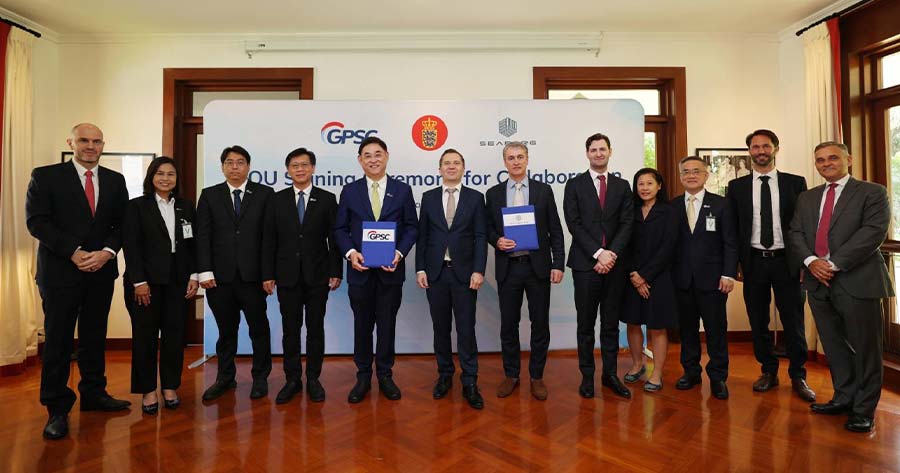GPSC has joined hands with Seaborg from Denmark to conduct the feasibility study for the development of clean energy based on SMR technology. The study is expected to take about 4 years with a belief that SMR will be a part of technology that enables clean and environmentally friendly energy possible, heading towards the target of Net Zero Emissions by 2060 while creating the sustainable and stable electricity system in Thailand.
Mr. Worawat Pitayasiri, President and Chief Executive Officer of Global Power Synergy Public Company Limited or GPSC, the innovative power flagship of PTT Group, revealed that, on 24 April 2024, GPSC signed the memorandum of understanding (MOU) with Mr. Klaus Nyengaard, Chief Executive Officer of Seaborg Technologies ApS, the developer of SMR technology (Small Modular Reactor) in Denmark with the company’s mission to provide clean, safe, and reliable power generation to meet the growing demand for sustainable energy worldwide. The signing ceremony, presided by H.E. Mr. Jon Thorgaard, Ambassador of Denmark to Thailand and Cambodia, was organized at the Royal Danish Embassy, Sathorn, Bangkok, Thailand. This MOU is designated to study the feasibility of developing SMR technology, which has been developed and designed with an emphasis on smaller modules but high security and safety. Most importantly, SMR technology does not release carbon dioxide into the atmosphere. Thus, it is considered as an important alternative to produce clean energy in addition to the other renewable energy sources in Thailand, which is believed to satisfy the demand for clean and environmentally friendly electricity. It is projected that the aforementioned feasibility study will take approximately 4 years (2024-2027).
In reference to this collaboration, both parties will jointly conduct the feasibility study, which covers the issues of technology, safety, environment, laws, risk factors, marketing, business development, guidelines for infrastructure development, and suitability of the location, with a capacity of power generation ranging approximately from 200 to 800 MW. This includes the learning and exchange of technological knowledge with an intention to prepare both parties to make an informed decision on a potential new SMR project in Thailand. SMR is regarded as a new technology that requires suitability study and involvement from all stakeholders, e.g., government agencies, supervisory authorities, social sector, and the public. This is all to build confidence and understanding of effective management systems related to such technology.
Mr. Klaus Nyengaard, Chief Executive Officer of Seaborg Technologies ApS, said, “The innovative development of small modular reactor, or SMR, is seen as an opportunity to expand the production of environmentally friendly electric power. This is also in line with GPSC’s strategy to seek the new forms of electric power development so that the advanced technologies of electricity generation systems in Thailand can be enhanced with more stability and security.”
The feasibility study of SMR technology is as highly significant as hydrogen technology and carbon capture & storage (CCS), which are already in the process of study by GPSC. Our goal is to explore additional opportunities to develop more alternative production of electricity and steam from clean energy, aligning with GPSC’s main mission in helping alleviate the issues of global warming. The feasibility study assisted by the experts from Seaborg will enable GPSC to achieve such global safety standards as passive design (only available in SMR technology), small reactor design, waste management, etc., corresponding to the criteria of international organizations like the International Atomic Energy Agency (IAEA). However, in order to gain acceptance from all parties, the SMR feasibility study must take into account the opinions from all sectors involved, especially those in the fields of legislation, environmental impacts, safety, etc.





